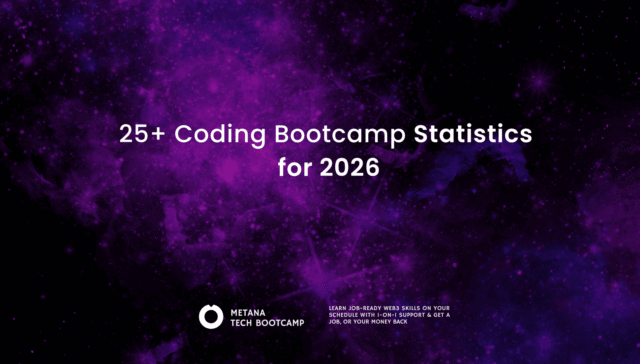TL;DR:
- Scikit-Learn is a Python library focused on simple and efficient tools for data mining and analysis, ideal for classical machine learning tasks.
- TensorFlow, developed by Google, is an end-to-end open-source platform designed for building and deploying large-scale machine learning and deep learning models.
- Scikit-Learn’s user-friendly interface and simplicity make it suitable for beginners and traditional ML applications.
- TensorFlow’s flexibility and scalability cater to complex neural networks and deep learning projects, supporting deployment across various platforms.
- Choosing between the two depends on project requirements: Scikit-Learn for straightforward ML tasks and TensorFlow for advanced deep learning needs.

What is Scikit-Learn?
Scikit-learn is a powerful, user-friendly Python library for machine learning. It offers a wide range of tools for tasks like classification, regression, clustering, and dimensionality reduction, making it ideal for many projects. Its simplicity and clear documentation make it a go-to choice for beginners and experienced users alike, with a supportive community to back it up.
However, Scikit-learn focuses on traditional machine learning and may not be the best fit for advanced deep learning models or complex neural networks, where tools like TensorFlow shine. It can also struggle with extremely large datasets. For most standard machine learning tasks, though, Scikit-learn is a reliable and accessible option.
Here’s a table that summarizes the strengths and weaknesses of Scikit-Learn,| Strengths | Limitations |
|---|---|
| Ease of use and simplicity | Limited support for deep learning models and complex neural networks |
| Vast collection of well-documented resources and community support | Performance limitations when dealing with large-scale datasets and tasks |
| Consistent API and extensive documentation |

What is TensorFlow?
TensorFlow is an open-source machine learning tool created by Google, and it’s seriously powerful! It’s perfect for building advanced machine learning models, especially deep neural networks, and its flexibility makes it a top choice for a wide range of tasks. You can use it with languages like Python, C++, and JavaScript, and it’s great for scaling across multiple devices or machines for big projects.
What makes TensorFlow stand out is its ability to handle complex deep learning tasks with ease. It’s designed to be versatile, supporting everything from research to production-level projects. However, its advanced features can make it a bit challenging for beginners, and debugging or setting up models might feel overwhelming if you’re new to deep learning. For those diving into sophisticated machine learning, though, TensorFlow is a fantastic and robust option!
Here’s a table that summarizes the strengths and weaknesses of TensorFlow,| Strengths | Limitations |
|---|---|
| Flexibility and scalability for building complex neural networks | Steeper learning curve compared to other libraries, requiring a deeper understanding of concepts |
| Extensive support for deep learning models | Potential challenges in implementing and debugging TensorFlow models |
| Availability in multiple programming languages | |
| Support for distributed computing |
Is Scikit Better Than TensorFlow?
| Comparison-point | Scikit-learn | Tensorflow |
|---|---|---|
| Main Use | Traditional machine learning tasks | Deep learning tasks |
| User-friendliness | Known for simplicity and ease of use | Has a steeper learning curve due to advanced features |
| Documentation | Extensive documentation and a vibrant community | Extensive documentation, but requires deeper understanding of concepts |
| Scalability | Efficient for small to medium-sized datasets | Excels in handling big data and complex computations |
| Customization | Limited support for model customization | Offers extensive customization options |
| Neural Network Support | Limited support for complex neural networks | Provides a flexible framework for building complex neural networks |
| Distributed Computing | Doesn’t inherently support distributed computing | Supports distributed computing, allowing usage of multiple devices |
| Learning Path | Ideal for beginners or those wanting quick implementation | Better suited for individuals with prior experience or a deeper understanding of machine learning |
| Language Support | Primarily supported in Python | Available in multiple languages including Python, C++, and JavaScript |
| Focus | Focus on traditional machine learning algorithms | Focus on deep learning and neural networks |
Choosing the Right Tool for the Job: Scikit-Learn vs Tensorflow
Scikit-learn and TensorFlow are both valuable tools in the machine learning landscape, each with its own unique strengths. Scikit-learn’s simplicity and ease of use make it an excellent choice for traditional machine learning tasks and quick prototyping. On the other hand, TensorFlow’s capabilities in deep learning and model customization make it the go-to library for complex neural networks and large-scale projects. Finally, the answer for the question “Is Scikit better than TensorFlow?” depends on your specific use case and requirements. If you’re starting with machine learning or need to quickly implement traditional algorithms, Scikit-learn is a solid choice. However, if you’re diving into deep learning or require extensive customization, TensorFlow is the library to explore. Understanding the strengths of both libraries in the Scikit-learn vs TensorFlow battle will help you make the right decision for your projects.Should I Learn TensorFlow or SkLearn?
When deciding between learning TensorFlow or Scikit-learn, several factors should be taken into consideration. Enrolling in machine learning training courses can provide a strong foundation in both frameworks, helping professionals make informed choices based on their career goals and industry demands, ultimately benefiting their future. Here are some points to help guide your decision:-
- Personal Goals: Consider your personal goals and aspirations in the field of machine learning. If you have a keen interest in deep learning and complex neural networks, TensorFlow might be the better option. On the other hand, if you are more interested in traditional machine learning algorithms and want to quickly implement models, Scikit-learn can be a great choice.
-
- Project Requirements: Evaluate the specific requirements of your projects. If your project involves deep learning tasks, such as image recognition or natural language processing, TensorFlow’s deep learning capabilities will be valuable. However, if your project revolves around traditional machine learning tasks like classification or regression, Scikit-learn’s extensive range of algorithms can be highly beneficial.
-
- Prior Experience in Machine Learning: Take into account your level of experience in machine learning. If you are a beginner or have limited experience, Scikit-learn’s simplicity and user-friendly interface make it an excellent starting point. TensorFlow, with its more complex concepts and advanced features, might be better suited for individuals with prior experience or a solid understanding of machine learning principles.
-
- Combination Approach: Consider leveraging the strengths of both libraries by learning both TensorFlow and Scikit-learn. While they excel in different areas, the knowledge of both frameworks can broaden your skillset and enable you to tackle a wider range of machine learning projects. Understanding the use cases where one library is more suitable than the other will allow you to choose the right tool for each specific task.
Conclusion
In conclusion, when you ask the question “Should I learn TensorFlow or SkLearn?”, it ultimately depends on your individual goals, project requirements, and prior experience. By assessing these factors, you can make an informed decision and determine which library aligns best with your needs in the Scikit-learn vs TensorFlow conflict. It is worth noting that being proficient in multiple machine learning libraries can provide advantages in the dynamically evolving field of machine learning. FAQs-
- Can I use TensorFlow with Scikit-Learn?
Yes, TensorFlow and Scikit-Learn can be used together. TensorFlow can be used for advanced deep learning models, while Scikit-Learn provides a range of traditional machine learning algorithms that can be integrated into TensorFlow pipelines.
-
- Which library is better for beginners: Scikit-Learn or TensorFlow?
Scikit-Learn is generally considered better for beginners due to its simplicity and ease of use. TensorFlow has a steeper learning curve and is more suitable for individuals with prior experience or those specifically interested in deep learning.
-
- Does Scikit-Learn support deep learning?
Scikit-Learn primarily focuses on traditional machine learning algorithms and has limited support for deep learning. For deep learning tasks, TensorFlow is the preferred choice.
-
- Can TensorFlow handle large-scale datasets?
Yes, TensorFlow provides support for distributed computing, allowing scalability to handle large-scale datasets and complex computations across multiple devices or machines.
-
- Which library is more widely used: Scikit-Learn or TensorFlow?
Both Scikit-Learn and TensorFlow are widely used in the machine learning community. Scikit-Learn has been embraced for its simplicity, while TensorFlow has gained popularity for its deep learning capabilities.
-
- Can I use Scikit-Learn for image recognition tasks?
While Scikit-Learn offers basic tools for image recognition, it is not specifically designed for advanced image recognition tasks. TensorFlow provides extensive capabilities and is better suited for image recognition and related computer vision tasks.
-
- Which library is better for natural language processing (NLP): Scikit-Learn or TensorFlow?
For NLP tasks, libraries such as spaCy or NLTK are more commonly used. TensorFlow, however, offers tools and pre-trained models for NLP tasks, making it a viable option for certain NLP applications.
-
- Is TensorFlow suitable for production deployments?
Yes, TensorFlow is widely used in production environments for deploying deep learning models. It provides tools and frameworks like TensorFlow Serving and TensorFlow Lite for efficient deployment on various platforms.
-
- Can Scikit-Learn be used for real-time applications?
Scikit-Learn is primarily designed for batch learning and is not well-suited for real-time applications. TensorFlow, with its ability to build and deploy deep learning models, is often preferred for real-time applications.
-
- Which library has better community support: Scikit-Learn or TensorFlow?
Both Scikit-Learn and TensorFlow have active and supportive communities. Scikit-Learn benefits from its wide adoption in the machine learning community, while TensorFlow has a vibrant community of researchers, practitioners, and developers due to its deep learning capabilities.







